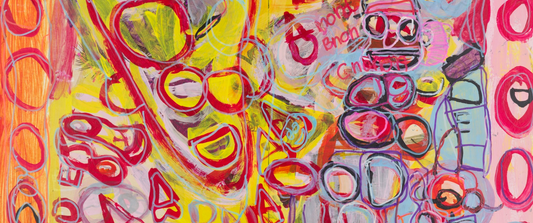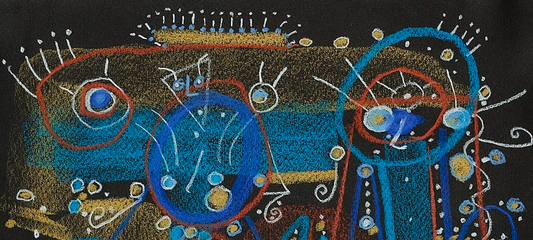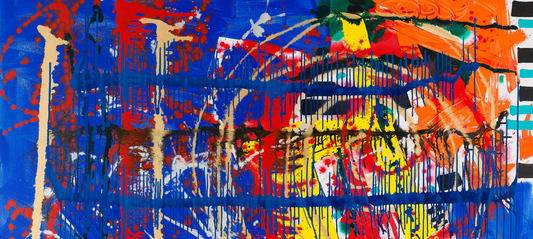First published: Winter 2010
The site is a non-descript white clapboard house in Oakland, California, on a busy street corner in what is not the best part of town. Yet the plainness of the exterior belies a truly awesome interior; a mass gathering of tiny shapes, colours and volumes, encrusting the walls and ceilings with a many-layered accumulation of found and modified objects writhing with textures, intensity and movement.
Taya Doro Mitchell, at 75, has seemingly experienced several lives. Born in the small village of Heemstede in The Netherlands, she had a difficult childhood raised by a strictly controlling, moralising mother and a father who worked such long hours that he was rarely home.
She and her four sisters attended school until aged 12–13, and then were pulled out by their mother who felt that those years of education had been sufficient. Taya’s mother wanted her daughters to learn to become seamstresses, the sole occupation that she felt would be open to them as lower-class women during a period that was still extremely class-conscious.

Although even at that time Doro knew that she would never follow that route, she internalised her mother’s constant harping to ‘move her hands’, to keep busy and to always be doing something. She has retained this propensity all her life.
Her strict Catholic upbringing filled her with feelings of guilt and suffering and, although during the 1950s it was extremely difficult for a young woman to leave the family home without first marrying, Taya knew that as soon as she reached the age of 18 she would no longer have to bend to her mother’s authoritarian dictates. She planned for that day years in advance and took small but significant steps in that direction by joining a family service organisation that trained young girls to help mothers and children in difficult circumstances. It was located close enough to her home to travel there by bicycle and it was tuition-free, so, despite her mother’s strident opposition, she was able to take this first step towards personal freedom. She remembers that accomplishment as ‘glorious’.
This is an article extract; read the full article in Raw Vision #71




